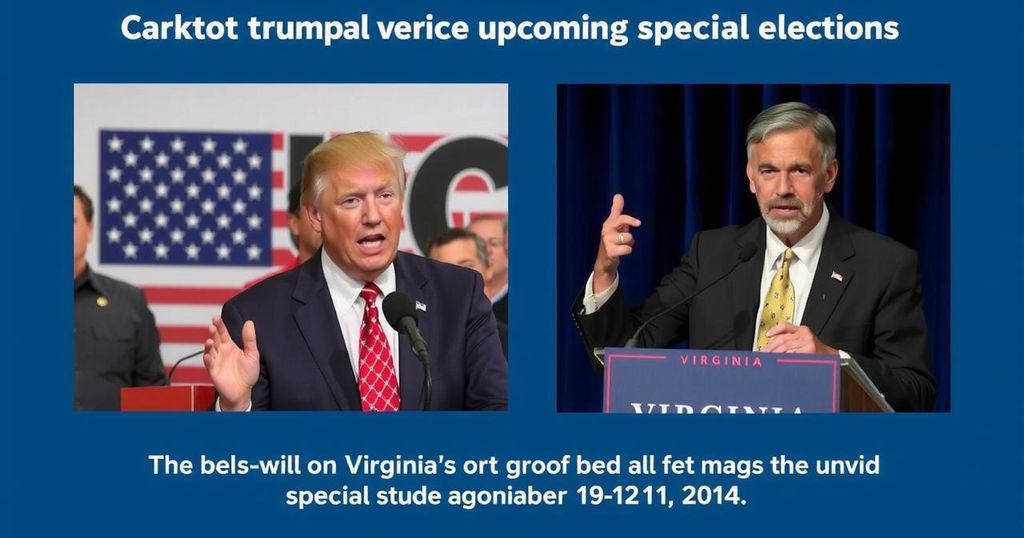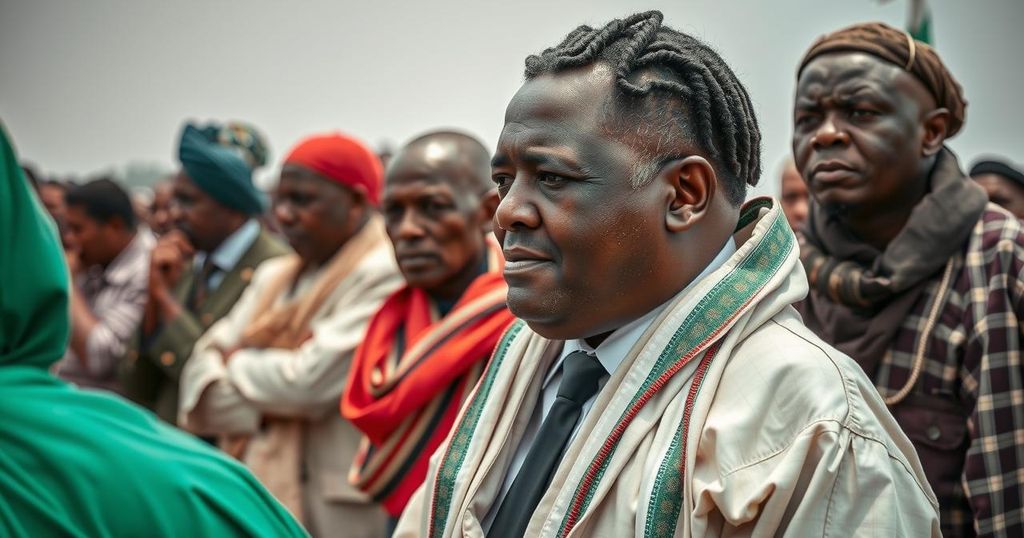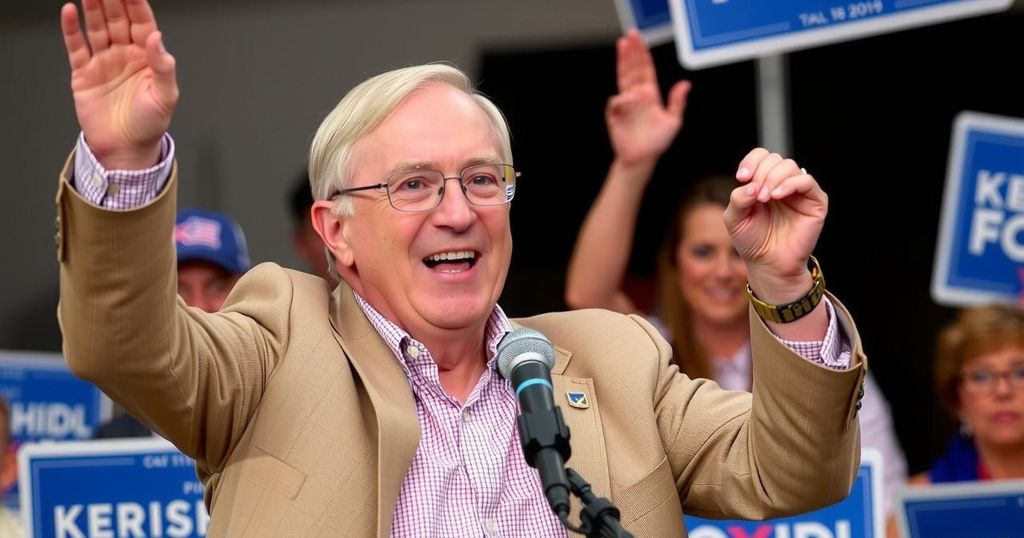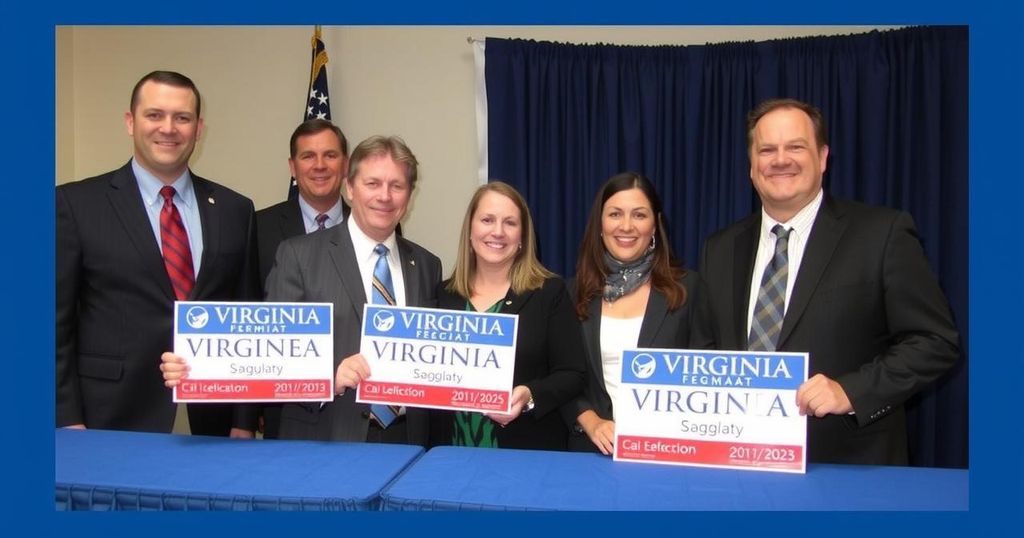World news
AFRICA, AP, BALLOT MEASURES, BOB GOODE, CIVIL RIGHTS, CONGRESS, DELEGATES, DEMOCRAT, ELECTION, HOUSE OF, JOE BIDEN, KAMAL, LEGISLATION, LOUDOUN COUNTY, NORTH AMERICA, PRESIDENTIAL CANDIDATES, PRESIDENTIAL ELECTION 2024, RAM VENKATACHALAM, RICHMOND, SENATE, SOUTH AFRICA, TU, UNITED STATES, VIRGINIA
Jamal Abdullah
0 Comments
Virginia’s Legislative Special Elections: Key Insights and Implications
Virginia’s special elections on Tuesday aim to fill legislative vacancies that could influence control in the state Senate and House. Key races include those in Loudoun County and Senate District 10, with implications for party leadership amidst narrowly divided chambers.
Virginia will commence the new year with special elections for state Senate and House vacancies, held on Tuesday. These elections are critical as they may ultimately dictate the balance of power in the closely contested legislative chambers. In Loudoun County, a special election arises from Democratic state Senator Suhas Subramanyam’s election to Congress, resulting in vacancies in both state Senate District 32 and House District 26. Democratic Del. Kannan Srinivasan, alongside Republican Tumay Harding, seeks to fill Subramanyam’s Senate seat, while Democrat JJ Singh and Republican Ram Venkatachalam contend in the House race.
Additionally, state Senate District 10, located west of Richmond, will fill the vacancy left by Republican state Senator John McGuire, who has likewise advanced to Congress. Republican Luther Cifers and Democrat Jack Trammell are vying for this position. The dynamics in these districts reveal trends, such as Loudoun County’s reputation for leaning Democrat, contrasting with the Republican preference in Senate District 10.
Current majorities in both the state Senate and House of Delegates rest with the Democrats. However, with elections looming, the stakes are high. If Republicans maintain McGuire’s seat and Democrats lose positions in either Loudoun County race, control may shift to the Republican party, leading to potential power-sharing arrangements or outright Republican dominance.
The election day details indicate polls will close at 7 p.m., with registered voters in pertinent districts eligible to participate, which encapsulates Senate Districts 10 and 32, as well as House District 26. Registered voter counts are approximately 177,000 in Senate District 10, 155,000 in Senate District 32, and 58,000 in House District 26. Previous legislative election turnouts averaged around 38% to 42% of registered voters, setting a precedent for expectations this time around.
The upcoming special elections in Virginia arise from recent legislative transitions, notably following the elections of state officials to Congress. Special elections are crucial as they can alter the balance of power within the state legislature, particularly when the majorities are razor-thin. The historical voting patterns in specific districts suggest potential trends in party dominance, with Loudoun County leaning Democratic in contrast to predominantly Republican votes in areas like Senate District 10. With a backdrop of recent elections where voters have favored Democrats in Loudoun but Republicans in other districts, these elections will be keenly observed for their implications on state governance.
In summary, Virginia’s special elections on Tuesday hold significant implications for legislative control. With competitive races in Loudoun County and beyond, the outcomes could either reinforce Democratic leadership or shift power towards Republicans. As voters prepare to cast their ballots in an environment of divided opinion and significant stakes, the results will be pivotal in shaping Virginia’s political landscape for the year ahead.
Original Source: www.nbcwashington.com




Post Comment